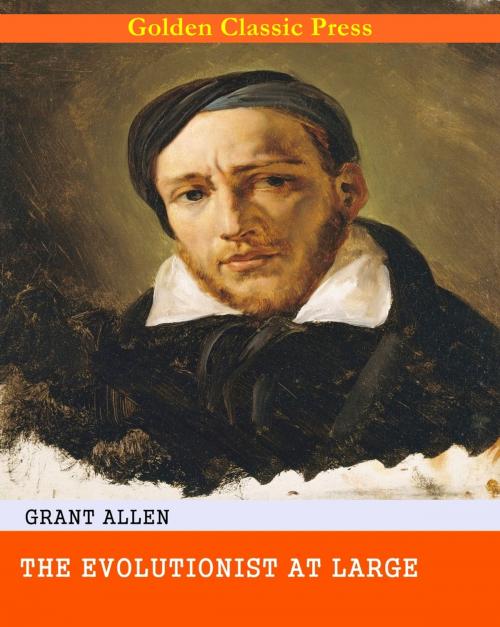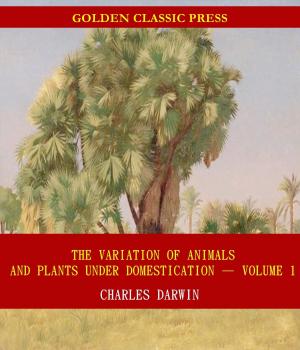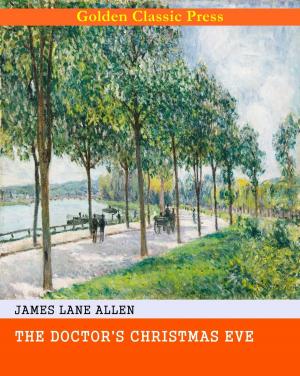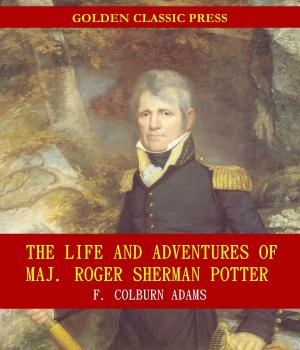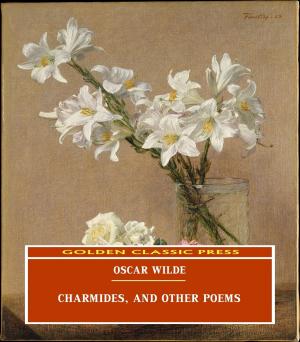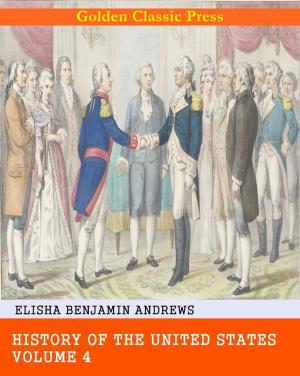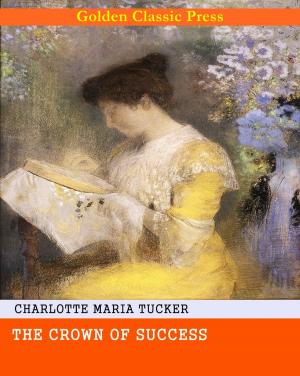| Author: | Grant Allen | ISBN: | 1230002937878 |
| Publisher: | GOLDEN CLASSIC PRESS | Publication: | November 28, 2018 |
| Imprint: | Language: | English |
| Author: | Grant Allen |
| ISBN: | 1230002937878 |
| Publisher: | GOLDEN CLASSIC PRESS |
| Publication: | November 28, 2018 |
| Imprint: | |
| Language: | English |
The Evolutionist at Large By Grant Allen Mr. Allen finds illustrations of the theory of evolution in common things of every-day occurrence. 'Sitting on this little rounded boss of gneiss beside the path which cuts obliquely through the meadow, I am engaged in watching a brigade of ants out on foraging duty, and intent on securing for the nest three whole segments of a deceased earthworm. They look for all the world like those busy companies one sees in the Egyptian wall-paintings, dragging home a huge granite colossus by sheer force of bone and sinew. Every muscle in their tiny bodies is strained to the utmost as they prise themselves laboriously against the great boulders which strew the path, and which are known to our Brobdingnagian intelligence as grains of sand. Besides the workers themselves, a whole battalion of stragglers runs to and fro upon the broad line which leads to the head-quarters of the community. The province of these stragglers, who seem so busy doing nothing, probably consists in keeping communications open, and encouraging the sturdy pullers by occasional relays of fresh workmen. I often wish that I could for a while get inside those tiny brains, and see, or rather smell, the world as ants do. For there can be little doubt that to these brave little carnivores here the universe is chiefly known as a collective bundle of odours, simultaneous or consecutive. As our world is mainly a world of visible objects, theirs, I believe, is mainly a world of olfactible things'. Charles Grant Blairfindie Allen (February 24, 1848 - October 25, 1899) was a Canadian science writer and novelist, and a successful upholder of the theory of evolution. He was born near Kingston, Canada West (now incorporated into Ontario), the second son of Catharine Ann Grant and the Rev. Joseph Antisell Allen, a Protestant minister from Dublin, Ireland. His mother was a daughter of the fifth Baron of Longueuil. He was educated at home until, at age 13, he and his parents moved to the United States, then France and finally the United Kingdom. He was educated at King Edward's School in Birmingham and Merton College in Oxford, both in the United Kingdom. After graduation, Allen studied in France, taught at Brighton College in 1870-71 and in his mid-twenties became a professor at Queen's College, a black college in Jamaica. Despite his religious father, Allen became an agnostic and a socialist. After leaving his professorship, in 1876 he returned to England, where he turned his talents to writing, gaining a reputation for his essays on science and for literary works. One of his early articles, 'Note-Deafness' (a description of what is now called amusia, published in 1878 in the learned journal Mind) is cited with approval in a recent book by Oliver Sacks. His first books were on scientific subjects, and include Physiological AEsthetics (1877) and Flowers and Their Pedigrees (1886). He was first influenced by associationist psychology as it was expounded by Alexander Bain and Herbert Spencer, the latter often considered the most important individual in the transition from associationist psychology to Darwinian functionalism. In Allen's many articles on flowers and perception in insects, Darwinian arguments replaced the old Spencerian terms. On a personal level, a long friendship that started when Allen met Spencer on his return from Jamaica, also grew uneasy over the years. Allen wrote a critical and revealing biographical article on Spencer that was published after Spencer was dead.
The Evolutionist at Large By Grant Allen Mr. Allen finds illustrations of the theory of evolution in common things of every-day occurrence. 'Sitting on this little rounded boss of gneiss beside the path which cuts obliquely through the meadow, I am engaged in watching a brigade of ants out on foraging duty, and intent on securing for the nest three whole segments of a deceased earthworm. They look for all the world like those busy companies one sees in the Egyptian wall-paintings, dragging home a huge granite colossus by sheer force of bone and sinew. Every muscle in their tiny bodies is strained to the utmost as they prise themselves laboriously against the great boulders which strew the path, and which are known to our Brobdingnagian intelligence as grains of sand. Besides the workers themselves, a whole battalion of stragglers runs to and fro upon the broad line which leads to the head-quarters of the community. The province of these stragglers, who seem so busy doing nothing, probably consists in keeping communications open, and encouraging the sturdy pullers by occasional relays of fresh workmen. I often wish that I could for a while get inside those tiny brains, and see, or rather smell, the world as ants do. For there can be little doubt that to these brave little carnivores here the universe is chiefly known as a collective bundle of odours, simultaneous or consecutive. As our world is mainly a world of visible objects, theirs, I believe, is mainly a world of olfactible things'. Charles Grant Blairfindie Allen (February 24, 1848 - October 25, 1899) was a Canadian science writer and novelist, and a successful upholder of the theory of evolution. He was born near Kingston, Canada West (now incorporated into Ontario), the second son of Catharine Ann Grant and the Rev. Joseph Antisell Allen, a Protestant minister from Dublin, Ireland. His mother was a daughter of the fifth Baron of Longueuil. He was educated at home until, at age 13, he and his parents moved to the United States, then France and finally the United Kingdom. He was educated at King Edward's School in Birmingham and Merton College in Oxford, both in the United Kingdom. After graduation, Allen studied in France, taught at Brighton College in 1870-71 and in his mid-twenties became a professor at Queen's College, a black college in Jamaica. Despite his religious father, Allen became an agnostic and a socialist. After leaving his professorship, in 1876 he returned to England, where he turned his talents to writing, gaining a reputation for his essays on science and for literary works. One of his early articles, 'Note-Deafness' (a description of what is now called amusia, published in 1878 in the learned journal Mind) is cited with approval in a recent book by Oliver Sacks. His first books were on scientific subjects, and include Physiological AEsthetics (1877) and Flowers and Their Pedigrees (1886). He was first influenced by associationist psychology as it was expounded by Alexander Bain and Herbert Spencer, the latter often considered the most important individual in the transition from associationist psychology to Darwinian functionalism. In Allen's many articles on flowers and perception in insects, Darwinian arguments replaced the old Spencerian terms. On a personal level, a long friendship that started when Allen met Spencer on his return from Jamaica, also grew uneasy over the years. Allen wrote a critical and revealing biographical article on Spencer that was published after Spencer was dead.
